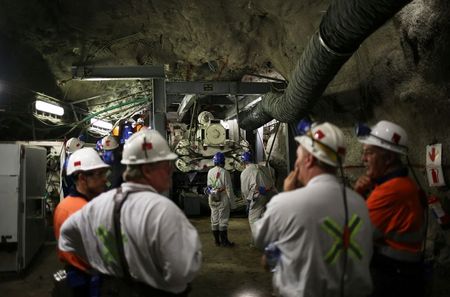JOHANNESBURG (Reuters) – South Africa’s private sector business activity recovered in November after staff in its biggest metal-workers union returned to work after striking in October, a survey showed on Friday.
IHS Markit’s Purchasing Manager’s Index (PMI) jumped to a six-month high of 51.7 in November from 48.6 a month before, skipping back into expansionary territory after a month.
“The economy made a step in the right direction in November, albeit a modest one, with the PMI indices for output and new business pointing to a slight rebound in activity from the strike-hit period,” said David Owen, economist at IHS Markit.
The lift-off was ushered in by positive turnarounds in output, new orders and employment, although the strength of the PMI was once again exaggerated by a marked lengthening of suppliers’ delivery times.
Businesses enjoyed a strengthening of customer demand but supply shortages and inflationary pressures remained key headwinds. The latest increase in input costs was among the fastest since mid-2016, some of which firms passed onto consumers through a sharper uptick in output charges.
South Africa’s central bank raised its main lending rate by 25 basis points to 3.75% last month, the first rate hike in three years in response to growing inflation risks.
Owens added the country now faces fresh challenges from the Omicron coronavirus variant, which has led to renewed travel barriers and economic uncertainty, and shows the recovery from the pandemic is still not as smooth as businesses would prefer.
(Reporting by Vuyani Ndaba; Editing by Toby Chopra)










